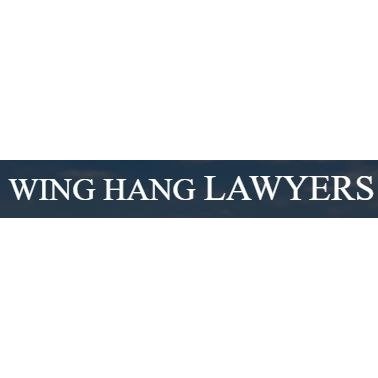Best Creditor Lawyers in Hong Kong
Share your needs with us, get contacted by law firms.
Free. Takes 2 min.
Or refine your search by selecting a city:
List of the best lawyers in Hong Kong
About Creditor Law in Hong Kong
Creditor law in Hong Kong is an essential aspect of the legal system, primarily dealing with the rights, obligations, and processes related to creditors - individuals or entities that are owed money by debtors. The legal framework is designed to ensure that creditors can recover debts while balancing the rights of debtors. This is enforced through a combination of common law principles and specific statutes that outline procedures for reclaiming unpaid debts, handling insolvency, and executing judgments. Hong Kong's position as a major financial hub necessitates a robust and transparent legal framework for resolving creditor-debtor disputes efficiently.
Why You May Need a Lawyer
Dealing with creditor issues typically involves complex legal processes and negotiating skills. Here are common situations where a lawyer’s assistance may be required:
- If you are a creditor attempting to recover debts from an uncooperative debtor.
- When pursuing insolvency proceedings against a bankrupt individual or entity.
- To understand and negotiate refinancing or restructuring agreements.
- If there is a need to litigate to enforce a debt-related judgment.
- When there are cross-border elements in your creditor-debitor relationships requiring expertise in international law.
Local Laws Overview
Several local laws in Hong Kong govern the rights and processes related to creditors. Some key aspects include:
- Companies Ordinance: This regulates the insolvency and restructuring processes for companies.
- The Bankruptcy Ordinance: This pertains to the personal bankruptcy of individuals, outlining the process of debt recovery from individuals.
- Court Procedures: The Rules of the High Court and various other court procedural rules dictate how claims and enforcement actions are to be carried out.
- Security Interests: Laws governing secured transactions and collateral to ensure creditors can recover debts using secured assets.
- Statutory Demand and Winding Up: Procedures allowing creditors to initiate company liquidation if debts are not repaid.
Frequently Asked Questions
1. What is the first step I should take if a debtor is not paying?
Initially, send a formal demand letter stating the amount owed and the consequences of non-payment. If the debtor ignores the letter, consult a lawyer to assess further legal action.
2. Can I charge interest on overdue payments?
Yes, provided it is specified in your contract with the debtor. Otherwise, statutory limits and agreements will apply.
3. What is a statutory demand?
A statutory demand is a formal notice requiring a debtor to pay the outstanding debt within 21 days. Failure to comply may result in legal proceedings for bankruptcy or company winding up.
4. How does a winding-up petition work in Hong Kong?
A winding-up petition is a legal action to liquidate a company's assets to pay off debts. It involves filing a petition in court and adhering to strict procedural rules.
5. What happens if an individual declares bankruptcy?
A debtor who declares bankruptcy is subject to asset liquidation to repay creditors and certain restrictions on financial transactions and operations.
6. How can secured creditors enforce their rights?
Secured creditors may take possession of or sell the collateral used to secure a loan, subject to any applicable legal guidelines and limitations.
7. Is it possible to recover debts from overseas debtors?
Yes, through cross-border agreements and legal proceedings in the jurisdiction where the debtor resides, though the process can be complex.
8. Can I still recover a debt if the company has been wound up?
Your ability to recover debts will depend on the distribution of the company’s assets. Secured creditors often have a priority claim over unsecured creditors.
9. Are there time limits for pursuing debt recovery?
Yes, the Limitation Ordinance provides timelines for when legal proceedings must commence, generally six years for simple contracts and loans.
10. What can I do if I receive a winding-up petition?
If you receive a winding-up petition, you should immediately seek legal advice, as you may need to dispute the petition or negotiate with the creditor.
Additional Resources
Several resources and organizations can assist those dealing with creditor issues in Hong Kong:
- The Hong Kong Monetary Authority
- The Consumer Council
- Insolvency Practitioners Association of Hong Kong
- Hong Kong Bar Association
- The Law Society of Hong Kong
Next Steps
If you require legal assistance with a creditor issue, consider the following steps:
- Consult a legal professional who specializes in creditor law in Hong Kong to understand your rights and options.
- Gather all relevant documents, including contracts, correspondence, and financial records related to the debt.
- Consider mediation or negotiation as initial approaches before proceeding with formal legal action.
- Stay informed about your legal obligations and deadlines to ensure compliance with court requirements and prevent adverse outcomes.
Lawzana helps you find the best lawyers and law firms in Hong Kong through a curated and pre-screened list of qualified legal professionals. Our platform offers rankings and detailed profiles of attorneys and law firms, allowing you to compare based on practice areas, including Creditor, experience, and client feedback.
Each profile includes a description of the firm's areas of practice, client reviews, team members and partners, year of establishment, spoken languages, office locations, contact information, social media presence, and any published articles or resources. Most firms on our platform speak English and are experienced in both local and international legal matters.
Get a quote from top-rated law firms in Hong Kong — quickly, securely, and without unnecessary hassle.
Disclaimer:
The information provided on this page is for general informational purposes only and does not constitute legal advice. While we strive to ensure the accuracy and relevance of the content, legal information may change over time, and interpretations of the law can vary. You should always consult with a qualified legal professional for advice specific to your situation.
We disclaim all liability for actions taken or not taken based on the content of this page. If you believe any information is incorrect or outdated, please contact us, and we will review and update it where appropriate.
Browse creditor law firms by city in Hong Kong
Refine your search by selecting a city.
















